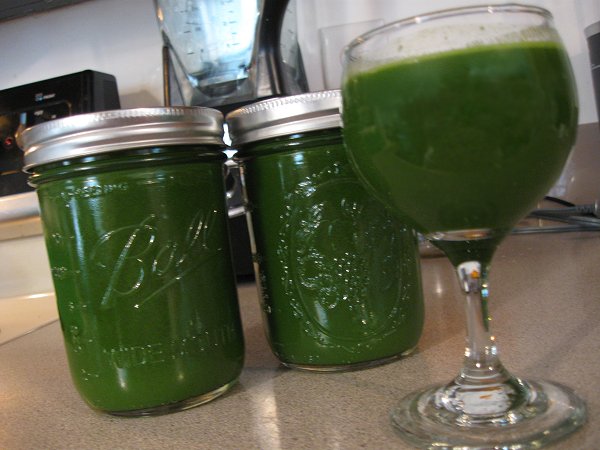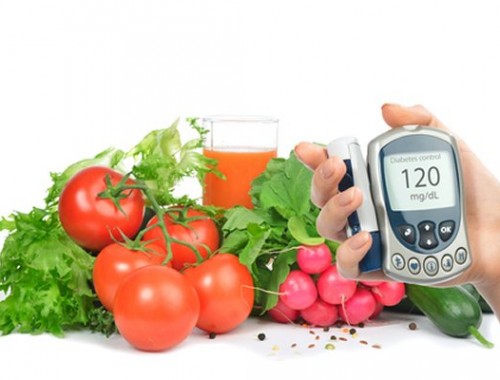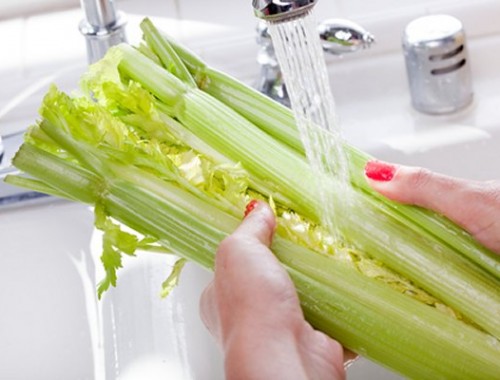A popular question from new juicers is how long can I store my juice? My answer is simple and straight to the point. Do not store your juice, consume it immediately after juicing. That way you get the maximum benefit without losing anything.
However, if you absolutely must store your juice then how long it will last depends on a variety of different factors including the type of juicer used, what fruits and vegetables you are juicing, the temperature you store it at, what you store it in and how soon after juicing you refrigerate it.
Let’s take an in-depth look at exactly what causes juice to degrade and how to get the longest possible storage time with minimal effect on the quality of the juice.
Heat Damage
The amount of heat created during juicing will depend on which type of juicer you are using and the speed at which that juicer juices. Centrifugal and Masticating juicers both generate heat, but centrifugal juicers generate more heat because they rotate faster than masticating juicers. This is one distinct advantage of masticating juicers.
Heat damages nutrients, but enzymes are particularly sensitive to heat. This is part of the reason long-life juices you can buy at the store aren’t as good for you as homemade juice. To increase shelf-life they have to pasteurize (which kills bacteria by heating), but that process also damages the beneficial enzymes. You really want to consume unpasteurized, raw juices.
Update: After researching this topic I am not convinced that the heat generated in juicing plays a big part in the degradation of juice. Sure it plays a part but I don’t think it’s a huge part of juice degradation. The heat generated, even by centrifugal juicers isn’t high enough to severely damage the nutrients and enzymes despite what juicer manufacturers may be saying. Oxidation however, is an entirely different matter!
Oxidation
Oxidation occurs during juicing because the juicer breaks the cell walls of the fruits and vegetables exposing them to the air. Substances in the cells react with the air producing oxidation. There is no way to juice without oxidization but centrifugal juicers are likely to produce more oxidation than masticating juicers because of the way they function.
But, oxidation doesn’t stop when you stop juicing. The longer the juice sits around, the more oxidation occurs. That’s why it’s important to drink your juice as soon as possible to get minimal oxidation and maximum benefit.
Sadly, drinking right away isn’t always practical or possible. I mean we all have to work, travel and can’t carry a juicer around with us 24/7 can we? Luckily, the amount of degradation can be slowed by understanding a few fundamental principles.
Fiber Slows Degradation
Juicing removes a lot of fiber but not all the fiber. Adding fiber or pulp back into your juice is a great way to increase the storage life of the juice in the refrigerator. Fiber helps prevent further oxidization which in turn will help the juice from degrading. The more fiber or pulp there is in your juice the longer it is likely to last in the fridge.
Smoothies tend to last longer because they contain more fiber. The soluble fiber in both juice and smoothies also helps your body to lower cholesterol and balance blood sugar naturally. A smoothie is really nice in the morning to get you started!
Citrus Juices Are Natural Preservatives
Citrus fruits are a good source of Vitamin C which is very good for your body. But did you know that Vitamin C is also known as ascorbic acid and is widely used as a food additive to prevent oxidation? If you’ve ever purchased apple slices you’re probably wondering why they don’t turn brown. The answer is they spray them with ascorbic acid!
This means that adding citrus fruits like oranges, lemons and limes to your juice will help them stay fresher longer. Just how much you add is a matter of taste but adding enough citrus juice will help slow degradation.
Another question I get asked all the time is should I juice citrus fruits with the peel on or off? The first thing to consider is did you buy organic or conventionally grown produce?
If it’s conventionally grown it’s wise to remove the citrus peel due to potential pesticide contamination. If you bought organic it’s really a matter of personal choice. Lemon and lime peel is digestable by humans but other citrus peels are not and may make your juice taste bitter.
Be sure to juice the pith from citrus fruits. The pith is the white layer under the peel that coats the fruit. It actually contains many nutrients like bioflavonoids.
Use An Airtight Glass Container
When storing juice in the fridge you want to use an airtight container and have as little air remaining in it as possible. The best thing to use is either a glass bottle or glass jar with a lid that forms an airtight seal. Also make sure that when storing your juice, you store it in containers that will hold just one serving as you do not want to keep opening and closing the lid letting air in.
Be sure to fill your containers to the very brim or maybe even overflow a little to minimize the air inside. My recommendation is that you never use plastic as plastic can leak toxins into the juice. Research has showed that even hard plastic containers leak toxins.
If you’re looking for the perfect juice containers try Balls Preserve Jars. I see many juicers using these jars and own a set myself!
Chill Your Juice
You always want to make sure your juice is cold. The colder the better but avoid freezing unless you absolutely need to. Don’t let your juice sit out of the fridge because that can encourage bacteria to grow in your juice which can make you very sick indeed.
Be prepared when juicing to get any unused juice in the fridge straight away. I sometimes place mine in the freezer for 5 minutes to get it nice and cool before placing it in the fridge. Just don’t forget and leave it in there too long or it will start to freeze!
How Long Can I Store My Juice?
I cannot stress this enough… Oxidation occurs the moment you start juicing. This is why it is important to drink the juice right after making it. If you have to store it, just remember that the longer it sits around the less benefit you are getting from it. That said, there is still a lot of benefit in drinking juice that has been stored correctly for a limited time so don’t think it’s not worth drinking juice that has been stored.
Here’s my opinion… if you’re using a centrifugal juicer don’t store your juice longer than 24 hours. If you’re using a masticating juicer don’t store your juicer longer than 48 hours. Try to drink it right away but if you must store it then use all of the above information to slow oxidation and degradation.
Smoothies are likely to keep longer because of the extra fiber. I wouldn’t store a smoothie longer than 72 hours. Remember, that all these storage times are estimates. Individual juices and smoothies may last less or more than these estimates. If you have any doubts about the state of your juice, throw it out and make a fresh batch. Fresh really is better!
A Final Word About Freezing
There is another way to store juice for longer periods and that’s to freeze it. For best results you need to freeze it as close to the time you juice it. This may be a good solution if you’ve made a lot of juice at once and can’t consume it in the near future. The freezing process will cause some damage but will keep it a lot fresher than if you left it in the fridge for a week!
You can make ice cubes or ice pops out of your leftover juice. These are quite refreshing but not everyone will enjoy a vegetable juice popsicle!
Further Reading: “The Truth about Heat, Oxidation and Juice Quality” by John Kohler







6 Comments
Hi Denise,
Thanks for the in depth article on storing juice. I saw the other day on a website where they said you could store it in the refrigerator for a week. Wow! Where did they get that from?
We’re on the same page here, I drink it when I juice. But, when I have too, I store it in mason jars and only for 24 hours. It really does taste better to me when it’s fresh though. Thanks again and best wishes!
The storage times I presented here are what I would use. There’s no saying you can’t store your juice for a week in the fridge, but I wouldn’t like to store it that long.
Remember there’s a distinction to be made between the storage time before the juice actually spoils and is undrinkable and the storage time before you lose the advantage of juicing at home.
What’s the point in spending all the time and money on a juicer and juicing if you just let it sit in the fridge and let all those nutrients and enzymes deteriorate?
Fresher will always be better so aim for as little storage time as possible, that’s what I say!
Excellent article Denise! I totally agree…drink your Juice right away if possible…if you can’t, store it in an airtight mason jar like you said for 1 to 2 days max depending on the kind of Juicer you use..I enjoyed reading this article, great info! Frank
Thanks Frank! I know there are differing opinions on storing juice and how long you can store it.
It’s my opinion that we all juice for a reason and that is to get the maximum health benefit we can from all those amazing fruits and vegetables.
So it makes sense to drink the juice when we make it for maximum benefit and limit storage time to an absolute minimum!
I was just wondering about freezing juice today. I have a masticating juicer and thought I’d make larger amounts and keep some in the fridge for later in the day or the next morning but so far I can’t stop myself from drinking it right away! It’s so good! Thanks for the great information.
Glad to hear you’re loving the juice! I don’t think i’ve ever frozen my juice to store it. It’s just so good fresh and I spent a lot of money on a juicer so that I could drink it fresh as possible. I have made juice popsicles but that’s because they are refreshing and not for storage reasons!